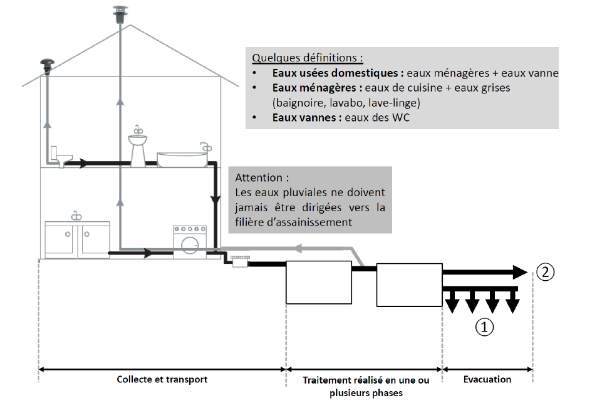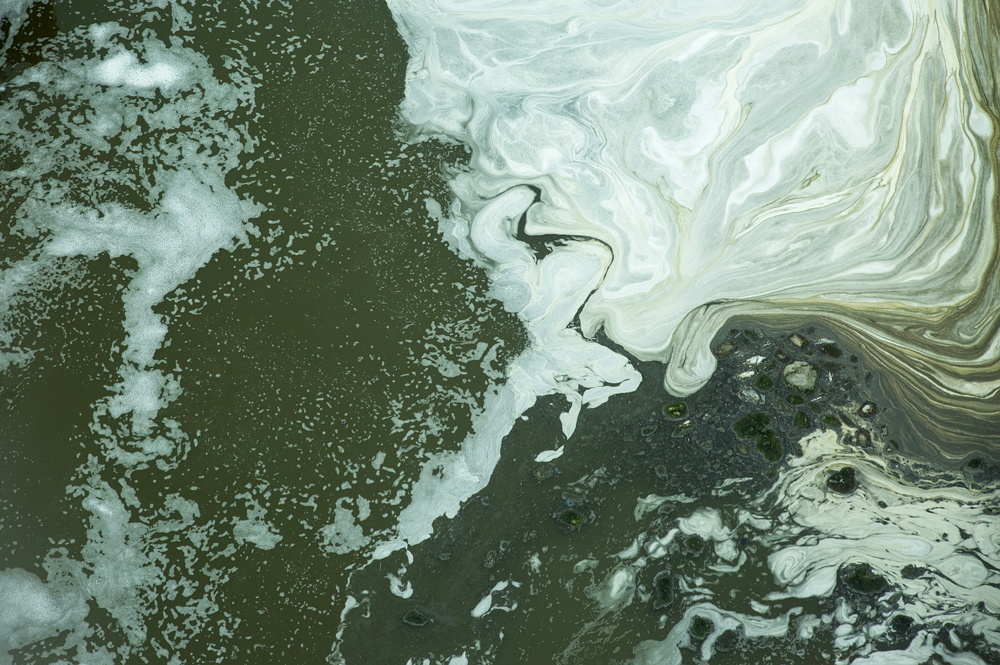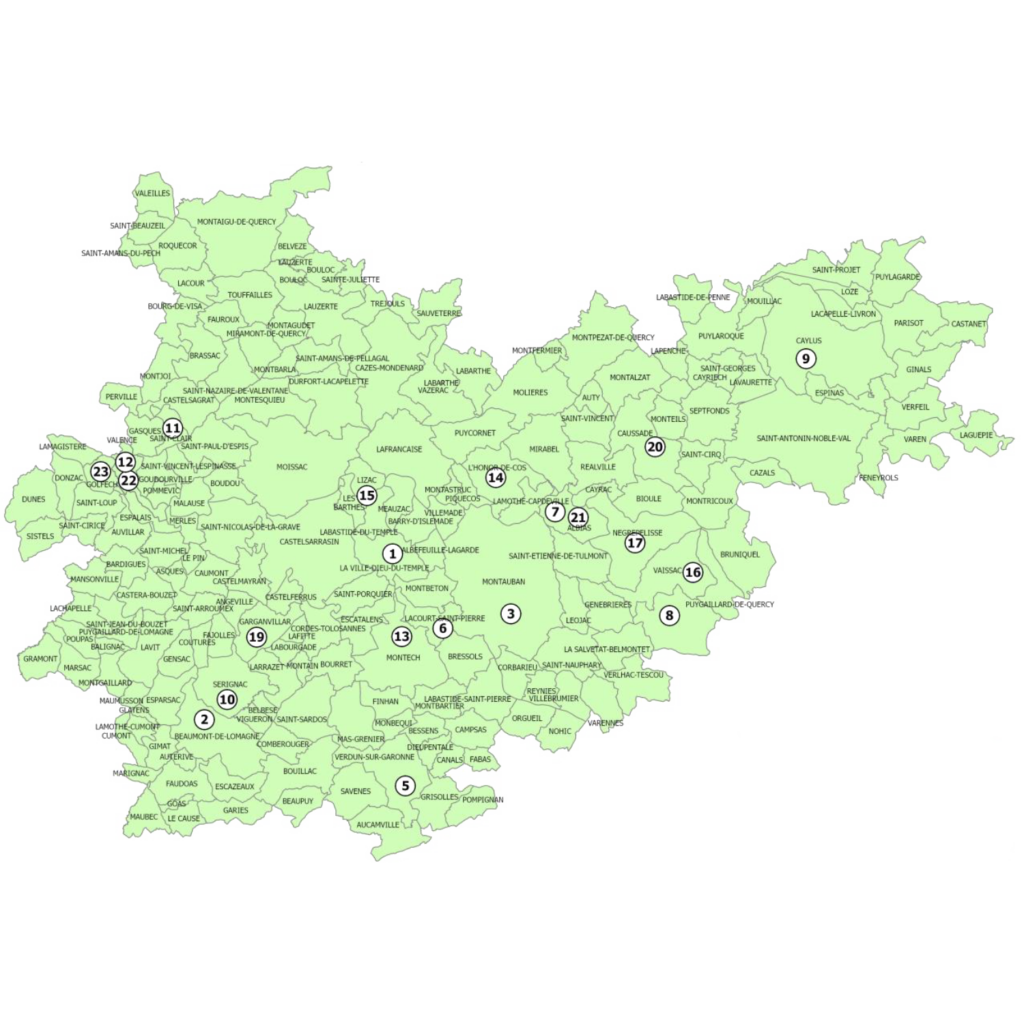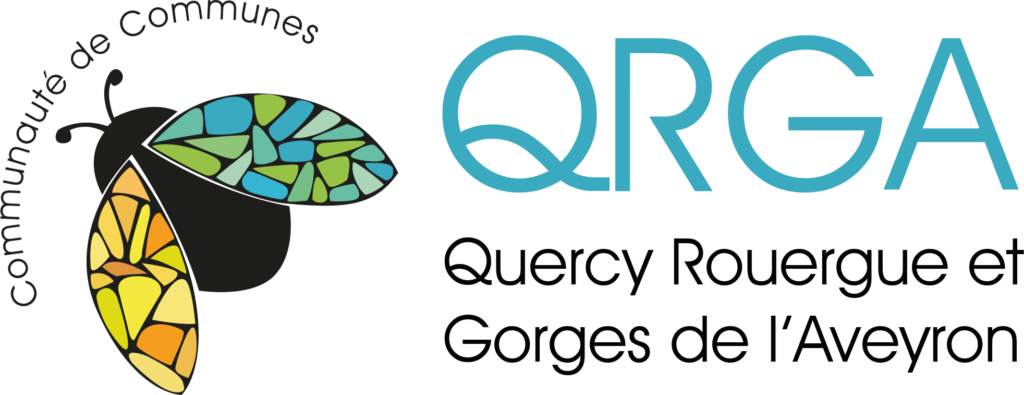non collective sanitation (SPANC)
The Service Public d'Assainissement Non Collectif (SPANC) is a local public service responsible for advising and assisting private individuals with the installation of their own sanitation facilities. It is also responsible for inspecting these installations (projects, works and existing installations).
This service was created in 2004 by the Communauté de communes.
The SPANC is a service made compulsory by the 2006 law on water and aquatic environments.
What is non-collective sanitation and how does it work?

A non-collective sanitation facility is any sanitation installation that collects, transports, treats and disposes of domestic or similar wastewater.
Domestic wastewater is collected and transported from the home by means of a collection device (box, etc.) followed by pipes;
Wastewater treatment is carried out either :
- in the existing soil, or reconstituted soil with upstream treatment by an all-water septic tank
- by a treatment system approved by the Ministries
Treated domestic wastewater is discharged primarily by infiltration (1) into the ground or, failing that, by discharge into the surface water environment (2) (watercourse, ditch, etc.).

We strongly advise you not to throw anything into your system:
Frying and draining oils and greases, paint, solvents, waxes, resins, petroleum products, all types of pesticides and all toxic products (see labelling).
Items that are difficult to break down: cigarette butts, feminine hygiene products, condoms, ashes, household waste, rags, packaging, wipes, etc.
Cleaning products such as bleach, detergents, etc. should be used sparingly. If used excessively, these products will alter the bacteria whose role is to ensure purification by consuming organic matter.
A few tips on using and maintaining your wastewater system
Since 1 January 2018, the communauté de communes has been responsible for wastewater treatment on a self-managed basis.
The aim of this department is to ensure that the collection and treatment of wastewater runs smoothly. Its main tasks are to monitor and maintain the wastewater treatment plants, with a view to preserving water quality.
The local authority has 14 wastewater treatment plants spread over 13 municipalities
Biological activators
Biological activators are not compulsory but may be recommended in cases where :
- prolonged absence from the home (second home) in order to reactivate the bacterial system inside the tank
- prolonged and intensive treatment with antibiotics
Maintenance of your all-water tank (or septic tank)
The all-water tank must be emptied when the level of sludge reaches 50% (30% for micro-stations) of the useful volume of the tank (cf. decree of 7 September 2009). This sludge level can be measured using a flexible stick dipped into the tank.
This corresponds to an average period of use of 4 years (for a principal residence).
Maintenance of the pit prefilter (decolloider)
Filter materials (pozzolans, filter mesh, cassettes) must be cleaned outside the pit using a low-pressure water jet 1 or 2 times a year.
In the case of pozzolan, it must be replaced when it deteriorates. It is advisable to change it approximately every 4 years (i.e. each time the pit is emptied).
Maintaining your grease trap
The grease trap should be cleaned much more frequently than the septic tank, at least every 6 months (depending on use).
To do this, use a bucket or the bottom of a bottle to remove any grease floating on the surface of the grease trap and drain any sludge deposited at the bottom of the grease trap (if necessary).
After cleaning the grease trap, hose down the inlet and outlet devices, then fill with clean water before putting back into service.
Accumulated grease can be disposed of with household waste in plastic bags or composted.
Maintenance of the treatment system (manholes)
Regularly check the distribution and loop manholes to ensure they are not clogged or blocked.
Clean manholes once or twice a year.
Maintenance of approved treatment systems (micro-stations, compact filters, etc.)
For maintenance of these devices, refer to the installer's or manufacturer's instructions.
What types of inspections does the SPANC carry out?
The different types of inspection are defined by the Order of 27 April 2012
- design control for new or renovated installations
- technical verification of the layout and correct execution of the works;
- periodic checks on the correct operation of installations ;
- Diagnosis of installations when selling a property;
Inspection fees
The amount of the fees was approved by a resolution on 9 April 2024, and the rates are as follows:
- Initial or periodic inspection of an existing installation: €120
- Design inspection + proper execution of work: €300
- Inspection of existing installation in the event of a property sale: €400
La périodicité des contrôles périodiques a été fixé à 8 ans
Do you want to build or renovate a sewage treatment plant?
To renovate or create an individual sanitation system, you need to fill in a form that can be obtained from the town hall or by downloading the document below.
If your wastewater treatment project requires discharge outside your property, it is essential to obtain prior agreement from the manager of the receiving environment:
If your project involves crossing a departmental road or discharging into a departmental ditch, you will need to obtain permission from the local authority. Click on the link below to download the form:
Would you like general information on the regulations and the various regulated ANC systems?
All the regulations relating to non-collective sanitation and the list of approved systems (micro-stations, compact filters, planted filters, etc.) are available at the following address:
An information guide on individual sanitation systems is available at :
The CCQRGA's SPANC and collective sanitation regulations :

Departmental charter for ANC
Aware of environmental issues that individual sanitation systems represent, the professionals and actors affected by the installations of these wastewater treatment systems have expressed the need to be able to guarantee an indispensable quality of implementation vis-à-vis you, the users. A departmental charter for non-collective sanitation was therefore created on 5 July 2013.
Your reference contact technique
Dimitri AUREL
SPANC technician
QRGA Community of Municipalities
Tel: 07 78 49 13 05
Mail: spanc@cc-qrga.fr
Your reference contact administrative
Isabelle DALAT-JAMMES
Administrative Manager, Water & Sanitation Department
QRGA Community of Municipalities
Tel.: 05 63 65 75 42
Mail: eaux.caylus@cc-qrga.fr
